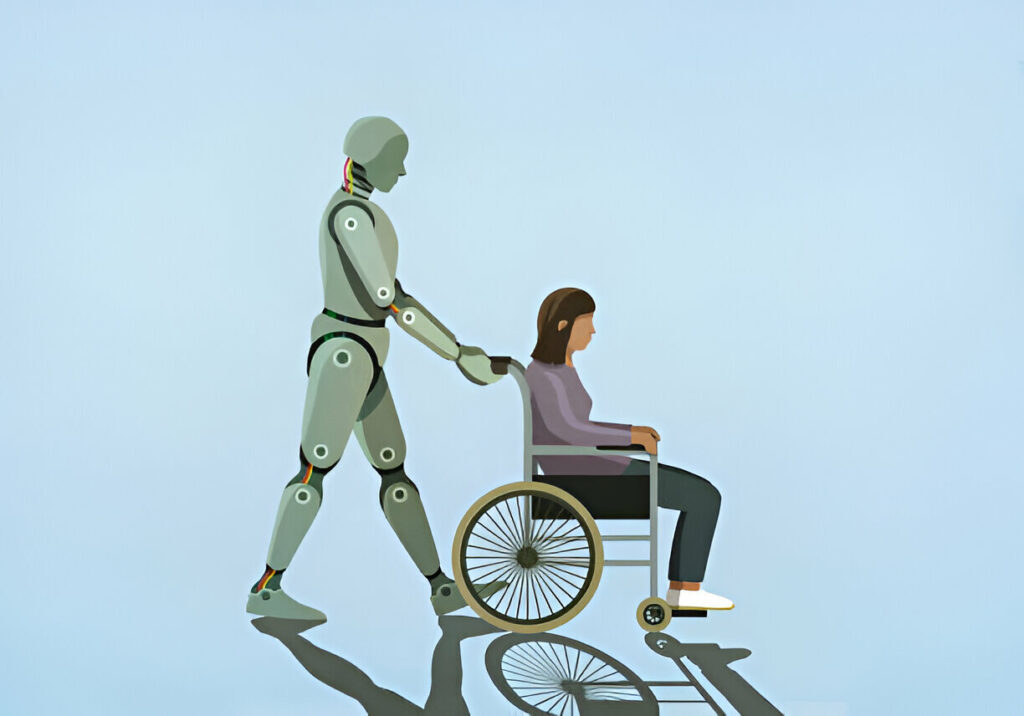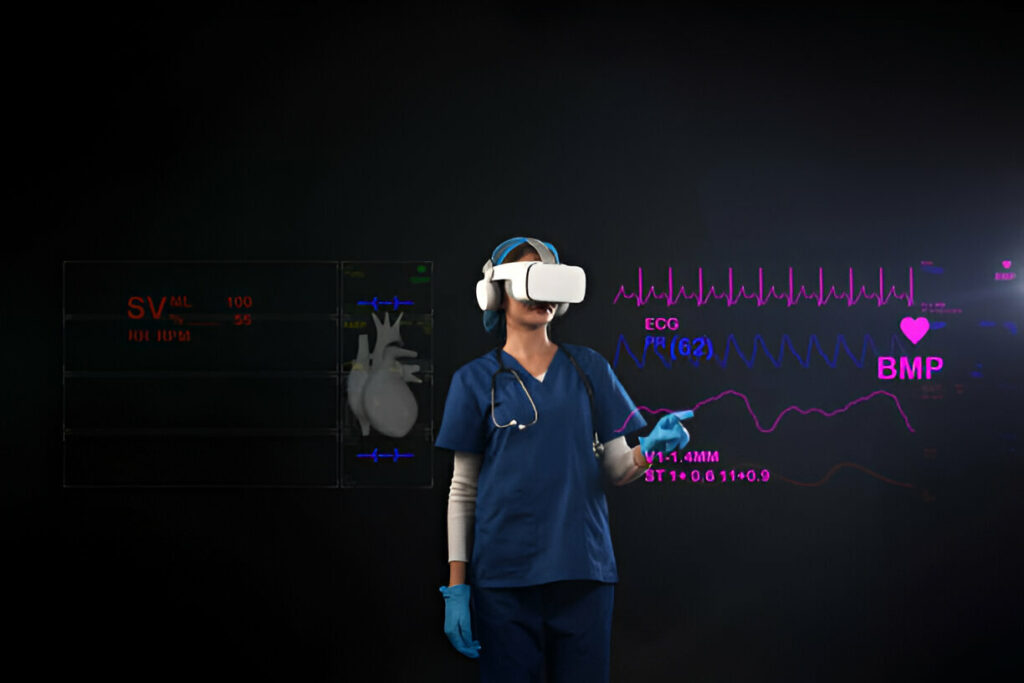Last Updated on March 11, 2025 by II Editor
Artificial intelligence (AI) is rapidly transforming various industries, and healthcare is no exception. With AI-powered robots assisting in surgeries, machine learning diagnosing diseases, and automation streamlining administrative tasks, many professionals wonder: Will AI eventually replace nurses? This question is particularly pressing in a world where technology continuously advances, promising both efficiency and precision. However, despite AI’s incredible capabilities, nursing remains a deeply human profession. In this article, we explore the role of AI in nursing, its potential benefits and limitations, and whether the profession is at risk of being completely automated.
Understanding AI in Healthcare
AI in healthcare encompasses a wide range of technologies, including machine learning algorithms, robotics, and natural language processing. These innovations improve patient outcomes by enhancing diagnostics, optimising treatment plans, and reducing human error. Some of the key AI-driven advancements in healthcare include:
- AI-Assisted Diagnostics: AI-powered tools, such as IBM Watson and Google’s DeepMind, analyse vast amounts of medical data to detect diseases like cancer and cardiovascular conditions with high accuracy.
- Robotic Surgery: Systems like the Da Vinci Surgical System assist surgeons in performing minimally invasive procedures, improving precision and reducing recovery times.
- Administrative Automation: AI chatbots and automated record-keeping help hospitals manage patient data, reducing the burden on healthcare staff.
- Remote Monitoring: Wearable technology and AI-driven monitoring systems track patients’ vitals, allowing for real-time health assessments and early intervention.
The Role of AI in Nursing
While AI can enhance healthcare delivery, nursing extends beyond clinical tasks—it involves critical thinking, emotional intelligence, and interpersonal skills that machines cannot replicate. Here are some ways AI is currently being integrated into nursing:
1. AI in Patient Monitoring and Care
Nurses are responsible for continuous patient monitoring, ensuring timely interventions. AI-powered wearable devices and remote monitoring tools assist nurses by detecting early warning signs of deterioration, alerting healthcare professionals to take action before a condition worsens.
2. Automation of Routine Tasks
Repetitive tasks such as medication administration, patient documentation, and scheduling can be automated with AI-driven systems. This allows nurses to focus more on patient care rather than administrative duties.
3. AI-Powered Decision Support
Clinical decision support systems (CDSS) use AI to analyse patient data, offering evidence-based recommendations to assist nurses in making informed choices about patient care.
4. AI in Training and Simulation
AI-driven virtual simulations provide nursing students with realistic clinical scenarios, enhancing their decision-making skills and preparedness for real-life situations.
Can AI Replace Human Nurses?
Despite AI’s growing influence, fully replacing human nurses is unlikely for several reasons:
1. Emotional and Psychological Support
Nurses provide emotional comfort and psychological support to patients and their families. Machines lack empathy and the ability to form genuine human connections, which are crucial in healthcare settings.
2. Critical Thinking and Adaptability
Healthcare is unpredictable. Nurses often make split-second decisions based on their experience and intuition. AI lacks the adaptability and contextual understanding that human judgment provides.
3. Hands-On Patient Care
Nursing involves hands-on care, including wound dressing, assisting with mobility, and personal hygiene. Robots may assist, but they cannot replicate the personalised care that human nurses provide.
4. Ethical and Legal Considerations
AI in healthcare raises ethical and legal concerns regarding patient privacy, data security, and liability. Nurses, governed by professional and ethical standards, ensure accountability in patient care.
The Future: AI as a Nursing Assistant, Not a Replacement
AI is more likely to complement rather than replace nursing. Future nursing roles may involve collaboration with AI-driven systems to enhance efficiency, accuracy, and patient outcomes. AI can alleviate workload pressures by handling administrative tasks, allowing nurses to focus on personalised patient care.
Potential Future Developments in AI and Nursing:
- AI-powered robotic assistants helping with physical tasks such as lifting and transporting patients.
- Enhanced predictive analytics to anticipate patient deterioration before it occurs.
- AI-driven language translation tools to improve communication with non-English-speaking patients.
- Virtual nursing assistants providing 24/7 patient guidance and monitoring.
Conclusion: The Human Touch Remains Irreplaceable
While AI is undeniably reshaping the healthcare industry, nursing remains a profession rooted in human compassion, critical thinking, and interpersonal connection. AI will continue to serve as a valuable tool in improving efficiency and patient care, but it will not replace the essential human element that nurses provide. Instead of fearing AI, healthcare professionals should embrace its potential to enhance their roles and improve patient outcomes.
In the evolving world of healthcare, the future of nursing lies not in replacement but in the harmonious integration of AI and human expertise.









